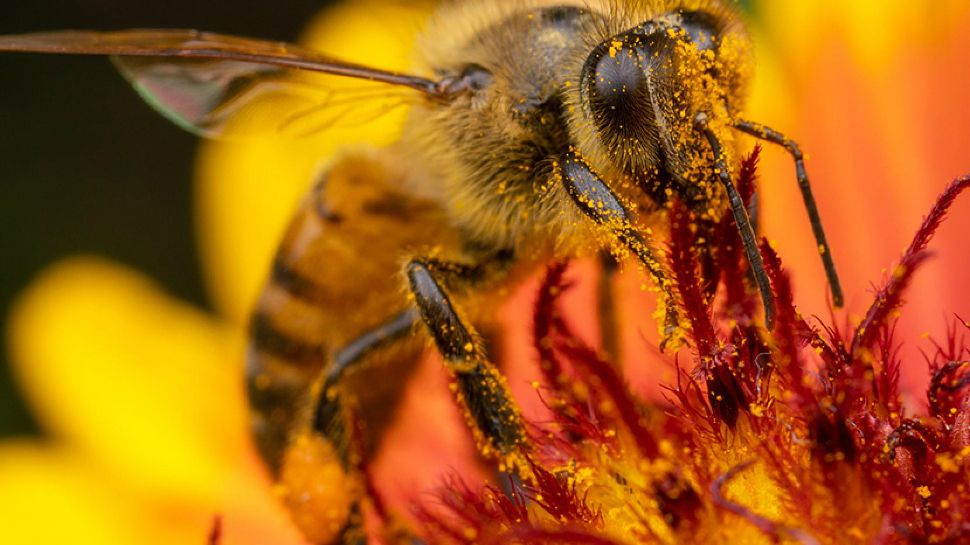AUSTIN, Texas — The world’s most widely used weed killer may also be indirectly killing bees, according to a new report from UT Austin.
• Research focused on active ingredient in Roundup
• Evidence suggests people should avoid spraying glyphosate-based herbicides on flowering plants that bees are likely to visit
New research conducted by the university shows that honey bees exposed to glyphosate, the active ingredient in Roundup, lose some of the beneficial bacteria in their guts and is more susceptible to infection and death from harmful bacteria. Scientists believe the evidence shows that glyphosate might be contributing to the decline of honey bees and native bees around the world.
Erick Motta is a graduate student who led the research, along with professor Nancy Moran.
“We need better guidelines for glyphosate use, especially regarding bee exposure, because right now the guidelines assume bees are not harmed by the herbicide. Our study shows that’s not true,” said Motta.
The researchers exposed honey bees to glyphosate at levels known to occur in crop fields, yards and roadsides. The researchers painted the bees’ backs with colored dots so they could be tracked and later recaptured. Three days later, they observed that the herbicide significantly reduced healthy gut microbiota. About half of bees with a healthy microbiome were still alive eight days after exposure to the pathogen, while only about one-tenth of bees whose microbiomes had been altered by exposure to the herbicide were still alive.
“Studies in humans, bees and other animals have shown that the gut microbiome is a stable community that resists infection by opportunistic invaders. So if you disrupt the normal, stable community, you are more susceptible to this invasion of pathogens," said Moran.
Based on their results, Motta and Moran recommend that farmers, landscapers and homeowners avoid spraying glyphosate-based herbicides on flowering plants that bees are likely to visit.
More than a decade ago, U.S. beekeepers began finding their hives decimated by what became known as colony collapse disorder. Millions of bees mysteriously disappeared, leaving farms with fewer pollinators for crops. Explanations for the phenomenon have included exposure to pesticides or antibiotics, habitat loss and bacterial infections. This latest study adds herbicides as a possible contributing factor.
“It’s not the only thing causing all these bee deaths, but it is definitely something people should worry about because glyphosate is used everywhere,” said Motta.
Native bumble bees have microbiomes similar to honey bees, so Moran said it’s likely that they would be affected by glyphosate in a similar way.
Funding for this work was provided by the U.S. Department of Agriculture’s National Institute of Food and Agriculture; the U.S. National Institutes of Health; and Coordenação de Aperfeiçoamento de Pessoal de Nível Superior, Brasil (Coordination for the Improvement of Higher Education Personnel, a Foundation within the Ministry of Education in Brazil).
The findings are published this week in the journal Proceedings of the National Academy of Sciences.



